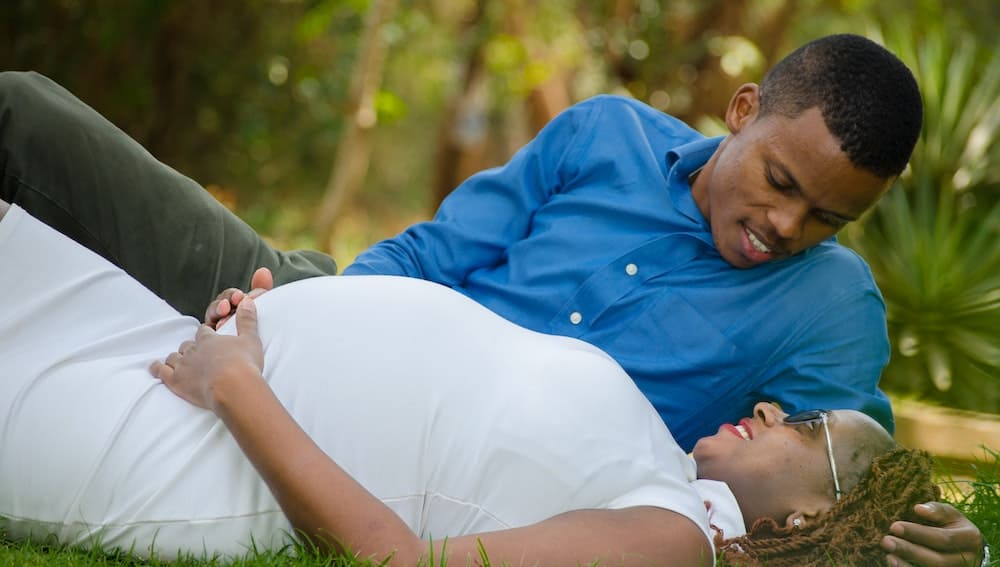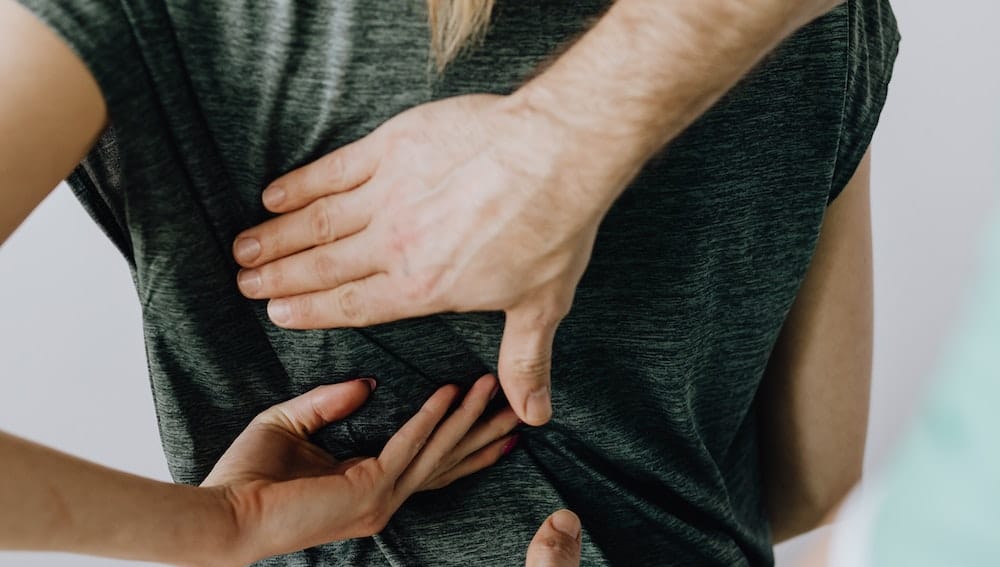Rib pain during pregnancy is not uncommon, but can a baby break your ribs? This question may cause concern for expecting mothers, especially if they experience discomfort or pain in their rib cage.
While it is rare for a baby to break a mother’s ribs during pregnancy, it is possible in certain circumstances.
Understanding the anatomy of the rib cage and how it changes during pregnancy can shed light on the likelihood of rib fractures. The rib cage expands to make room for the growing uterus, which can put pressure on the ribs and cause discomfort.
However, the ribs themselves become more flexible during pregnancy, which can reduce the risk of fractures.
Key Takeaways
- While it is rare, a baby can break a mother’s ribs during pregnancy.
- Understanding the changes in the rib cage during pregnancy can help determine the likelihood of rib fractures.
- The ribs become more flexible during pregnancy, which can reduce the risk of fractures.
Can a Baby Break Your Ribs?
Pregnancy is a beautiful experience for most women, but it can also be uncomfortable and even painful at times.
As the baby grows and develops, it can put pressure on various organs and bones in the mother’s body, including the ribs. This can lead some women to wonder if it’s possible for a baby to break their ribs.
The short answer is yes, it is possible for a baby to break a mother’s ribs during pregnancy. However, it is important to note that this is a relatively rare occurrence and is more likely to happen in certain situations.
One of the most common causes of broken ribs during pregnancy is trauma, such as a fall or car accident. In these cases, the impact can be severe enough to cause a fracture in the mother’s ribs, even if the baby is unharmed.
Another possible cause of broken ribs during pregnancy is osteoporosis, which is a condition that weakens bones and makes them more susceptible to fractures. This is more common in older women or those with a family history of the condition.
Finally, some women may be at a higher risk of broken ribs during pregnancy due to the position of the baby. If the baby is in a breech position or is larger than average, it can put more pressure on the mother’s ribs and increase the risk of a fracture.
In conclusion, while it is possible for a baby to break a mother’s ribs during pregnancy, it is a relatively rare occurrence.
Women who are concerned about their risk of broken ribs should talk to their healthcare provider and take steps to reduce their risk, such as practicing good posture and avoiding activities that increase the risk of falls or trauma.
Understanding the Anatomy
The human rib cage is made up of twelve pairs of ribs that are connected to the spine at the back and the sternum at the front. The ribs protect vital organs such as the lungs, heart, and liver, and also provide support for the upper body.
The diaphragm is a thin, dome-shaped muscle that separates the chest from the abdomen. It plays a crucial role in breathing by contracting and relaxing to move air in and out of the lungs.
The lungs are two spongy, cone-shaped organs that are located on either side of the chest. They are responsible for exchanging oxygen and carbon dioxide in the body.
The heart is a muscular organ that pumps blood throughout the body. It is located in the chest, behind the sternum and between the lungs.
The liver is a large, reddish-brown organ that is located on the right side of the abdomen. It performs many important functions, including filtering blood, producing bile, and storing nutrients.
The rib cage also contains many blood vessels and other internal organs, which can be affected by trauma or injury.
While it is rare for a baby to break a mother’s rib during pregnancy, it is possible due to the pressure and movement of the growing fetus. However, most cases of rib fractures during pregnancy are caused by trauma or accidents.
It is important to seek medical attention if you suspect a rib fracture, as it can cause significant pain and potentially lead to complications such as punctured lungs or damage to internal organs.
Pregnancy and Rib Pain
Rib pain during pregnancy is a common complaint, especially during the third trimester. The growing uterus puts pressure on the ribs, causing discomfort and pain.
Additionally, hormonal changes, such as an increase in relaxin, can cause musculoskeletal changes that further contribute to rib pain.
The severity of pregnancy rib pain can vary from person to person. Some women may experience mild discomfort, while others may experience severe pain that interferes with daily activities.
It is important to note that while rib pain is common during pregnancy, it is not normal to experience severe or persistent pain.
There are several things that pregnant women can do to alleviate rib pain. Wearing loose-fitting clothing and avoiding tight bras can help reduce pressure on the ribs.
Additionally, practicing good posture and using a pregnancy pillow for support while sleeping can help alleviate discomfort.
If rib pain is severe or persistent, it is important to speak with a healthcare provider. In some cases, rib pain during pregnancy can be a sign of a more serious condition, such as preeclampsia or gallbladder disease.
In conclusion, while rib pain is a common complaint during pregnancy, it is important to monitor its severity and seek medical attention if necessary. By practicing good posture and making lifestyle changes, pregnant women can alleviate discomfort and enjoy a healthy pregnancy.
Symptoms of Rib Issues
When a baby is growing inside a mother’s womb, it can put pressure on the surrounding organs and tissues, including the ribs. This pressure can lead to discomfort and pain in the ribcage area.
Some women may experience rib pain during pregnancy, which can be a normal part of the pregnancy process. However, in some cases, the pressure from the baby can result in more serious rib issues.
The symptoms of rib issues can vary depending on the severity of the condition. Some common symptoms include localized pain in the ribcage area, discomfort when breathing, and chest pain. In severe cases, rib issues can lead to trouble breathing, shortness of breath, and even pneumonia.
If a woman experiences any of these symptoms, it is important to seek medical attention right away. A doctor can perform a physical examination and run tests to determine the underlying cause of the symptoms.
In some cases, imaging tests such as X-rays or CT scans may be necessary to get a better look at the affected area.
In addition to medical treatment, there are some things that women can do to alleviate the symptoms of rib issues. These include using heat or ice packs on the affected area, taking over-the-counter pain medications, and practicing deep breathing exercises to help improve lung function.
Overall, while rib issues can be uncomfortable and painful, they are typically treatable with proper medical care. By recognizing the symptoms and seeking timely treatment, women can help ensure a safe and healthy pregnancy.
Causes of Rib Pain or Fractures
Rib pain or fractures can be caused by various factors, including trauma, accidents, falls, and contact sports. In some cases, rib pain can also occur due to medical conditions such as cancer, osteoporosis, or complications during pregnancy.
One common cause of rib pain is exercise. Activities such as weightlifting, contact sports like hockey or football, and even certain yoga poses can put stress on the ribs, leading to pain or even fractures.
It is important to use proper form and technique during exercise to minimize the risk of injury.
Breathing and coughing can also cause rib pain or fractures. Chronic coughing, such as from a respiratory illness or smoking, can put repeated stress on the ribs and lead to fractures or stress fractures.
Similarly, conditions that cause difficulty breathing, such as asthma or chronic obstructive pulmonary disease (COPD), can also put stress on the ribs and lead to pain or fractures.
In addition, trauma to the chest area can cause rib fractures or bruising. Car accidents and falls are common causes of chest trauma, which can result in cracked ribs or more severe fractures. It is important to seek medical attention if you experience chest pain after a traumatic event.
Overall, there are many possible causes of rib pain or fractures. It is important to seek medical attention if you experience persistent or severe pain, as untreated fractures can lead to complications such as lung damage.
Diagnosing Rib Issues
When a patient experiences pain in their rib cage, it is important to diagnose the issue properly to ensure proper treatment. Diagnosing rib issues typically involves a combination of physical exams and medical imaging.
During a physical exam, a doctor will examine the area around the ribs for any swelling or tenderness. They may also ask the patient to take deep breaths or move in certain ways to help identify the source of the pain.
Medical imaging, such as x-rays, CT scans, and MRIs, can also be used to diagnose rib issues. X-rays are often the first imaging test used to diagnose rib fractures, as they can clearly show any breaks in the bone.
CT scans and MRIs can provide more detailed images of the rib cage and surrounding tissues, making them useful for diagnosing issues such as rib dislocations or soft tissue injuries.
In some cases, a doctor may also perform a bone scan to look for any signs of abnormal bone growth or bone infections.
Overall, a combination of physical exams and medical imaging is typically used to diagnose rib issues. It is important for patients to seek medical attention if they are experiencing any pain or discomfort in their rib cage, as early diagnosis and treatment can help prevent further complications.
Treatment and Management
If a baby has broken a mother’s rib during pregnancy, the treatment and management options depend on the severity of the injury.
The following are some of the options that may be recommended by a healthcare provider:
- Rest: Rest is essential for the healing process. The mother may need to avoid activities that cause pain or discomfort, such as lifting heavy objects or bending over.
- Pain medication: Over-the-counter pain medication, such as acetaminophen, may be recommended to manage pain. However, it is essential to consult a healthcare provider before taking any medication.
- Management: The mother may need to manage her pain and discomfort by adopting a comfortable position. Using a pillow to support the affected area may help relieve pain.
- Deep breathing and breathing exercises: Deep breathing and breathing exercises may help improve lung function and reduce pain. A healthcare provider may recommend specific exercises to help the mother manage her pain and discomfort.
- Medications: In some cases, a healthcare provider may prescribe medication to manage pain or reduce inflammation.
- Chiropractor: A chiropractor may be able to provide relief from pain and discomfort by adjusting the spine and rib cage.
- Icing: Applying ice to the affected area may help reduce pain and inflammation.
In severe cases, surgery may be necessary to repair the broken rib. However, surgery is usually only recommended if the rib is causing severe pain or if it is affecting the mother’s ability to breathe.
It is essential to follow a healthcare provider’s instructions for treatment and management. With proper care, most broken ribs will heal within six weeks.
Prevention and Safety Measures
Prevention is always better than cure. Therefore, it is important to take necessary precautions to prevent any injury to the ribs during pregnancy.
Here are some safety measures that can help prevent rib fractures during pregnancy:
Posture
Maintaining a good posture is crucial during pregnancy. It helps reduce the pressure on the ribs and other parts of the body. Pregnant women should avoid slouching and try to sit up straight. They should also avoid standing or sitting for extended periods of time.
Exercise Ball
Using an exercise ball during pregnancy can help relieve pressure on the ribs. Sitting on an exercise ball can help maintain good posture and reduce the pressure on the ribs. It can also help strengthen the core muscles, which can provide additional support to the body.
Protective Equipment
Protective equipment, such as a rib belt, can help prevent rib fractures during pregnancy. A rib belt provides additional support to the ribs and reduces the pressure on them. It can also help reduce the risk of injury during physical activities.
Vitamin D
Vitamin D is essential for bone health. Pregnant women should ensure that they are getting enough vitamin D to maintain strong bones. They can get vitamin D from sunlight, supplements, and certain foods.
In conclusion, taking necessary precautions during pregnancy can help prevent rib fractures. Maintaining good posture, using an exercise ball, wearing protective equipment, and getting enough vitamin D can all help reduce the risk of injury to the ribs.
When to Seek Medical Attention
If a pregnant woman experiences severe pain in the ribs or chest, it is important to seek medical attention immediately. This could be a sign of a serious complication that requires prompt medical attention.
One possible complication is preeclampsia, a condition that can occur after 20 weeks of pregnancy and is characterized by high blood pressure and damage to organs such as the kidneys and liver.
Preeclampsia can cause pain in the upper right side of the abdomen, as well as headaches, vision changes, and swelling in the face and hands.
Another potential cause of rib pain during pregnancy is a heart attack. While rare, heart attacks can occur during pregnancy and can cause chest pain, shortness of breath, and other symptoms.
If a pregnant woman experiences severe or persistent pain in the ribs or chest, she should go to the emergency room or contact her healthcare provider immediately. They will be able to evaluate her symptoms and determine if further treatment is necessary.
In general, it is important for pregnant women to be aware of any changes in their body and to seek medical attention if they experience any concerning symptoms. Regular prenatal care can also help identify and manage any potential complications that may arise during pregnancy.
Overall, while it is possible for a baby to cause discomfort or even minor injury to the ribs during pregnancy, it is important to take any severe or persistent pain seriously and seek medical attention promptly.
Frequently Asked Questions
What are the signs of a broken rib in babies?
Babies with broken ribs may experience pain, swelling, and tenderness in the affected area. They may also have difficulty breathing, as the pain can make it hard for them to take deep breaths.
Is it possible for a baby to break a rib?
Yes, it is possible for a baby to break a rib. Babies’ bones are still developing and are more fragile than adult bones. A baby can break a rib from a fall, trauma, or even from being held too tightly.
What are the risks of a baby breaking a rib?
If a baby breaks a rib, there is a risk of damage to internal organs, such as the lungs. A broken rib can also lead to breathing difficulties, which can be life-threatening for a baby.
What should I do if I suspect my baby has a broken rib?
If you suspect your baby has a broken rib, seek medical attention immediately. Your doctor will be able to diagnose the injury and provide appropriate treatment.
Can coughing during pregnancy cause a broken rib in a baby?
It is unlikely that coughing during pregnancy can cause a broken rib in a baby. However, if a pregnant woman experiences trauma or falls, it is possible for the baby to suffer a broken rib.
What are the treatment options for a baby with a broken rib?
Treatment for a baby with a broken rib may include pain medication, rest, and monitoring for any complications. In severe cases, surgery may be necessary to repair the injury.
Also read: How to Keep Toddler in Room at Night

Iesha is a loving mother of 2 beautiful children. She’s an active parent who enjoys indoor and outdoor adventures with her family. Her mission is to share practical and realistic parenting advice to help the parenting community becoming stronger.




